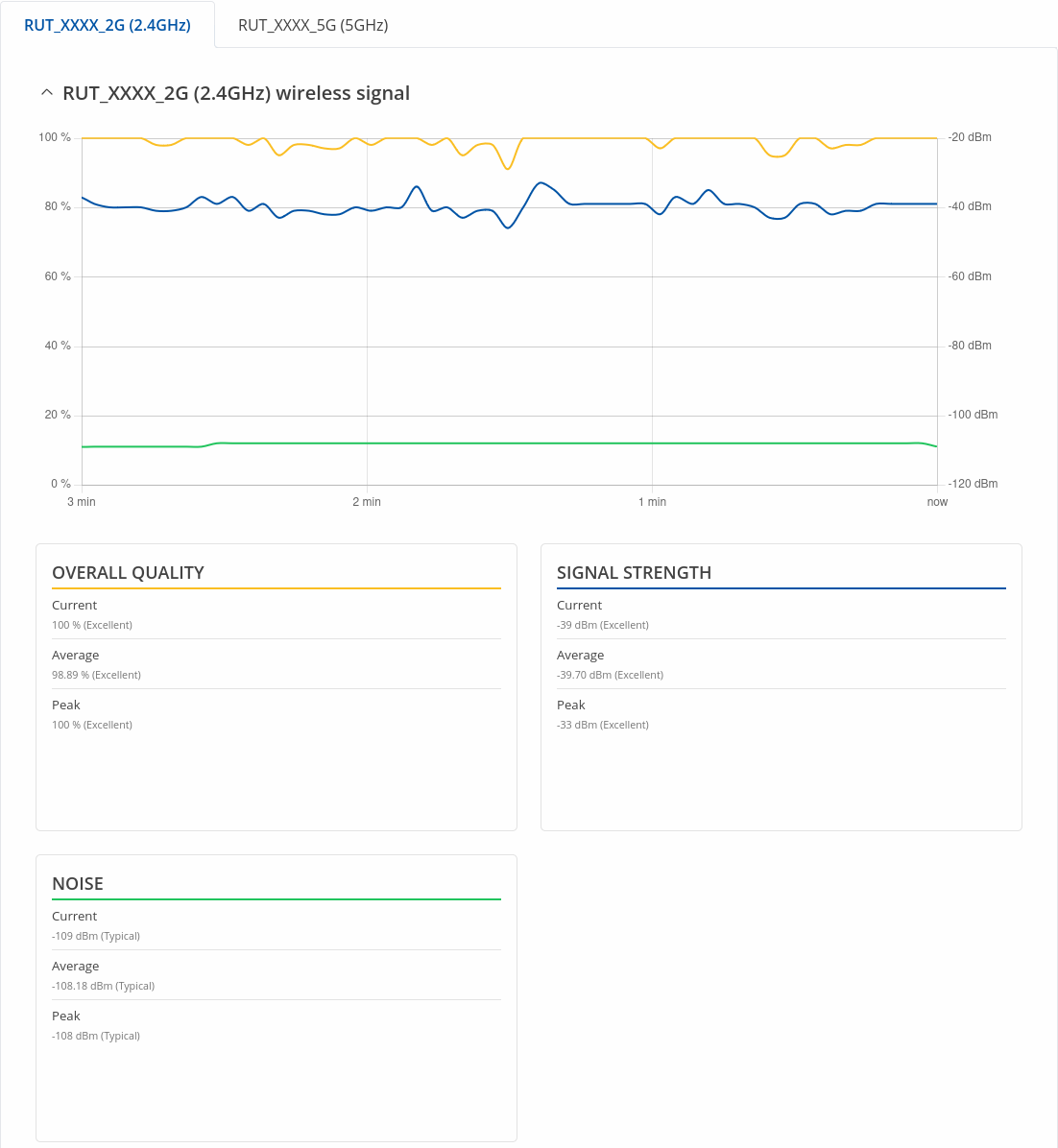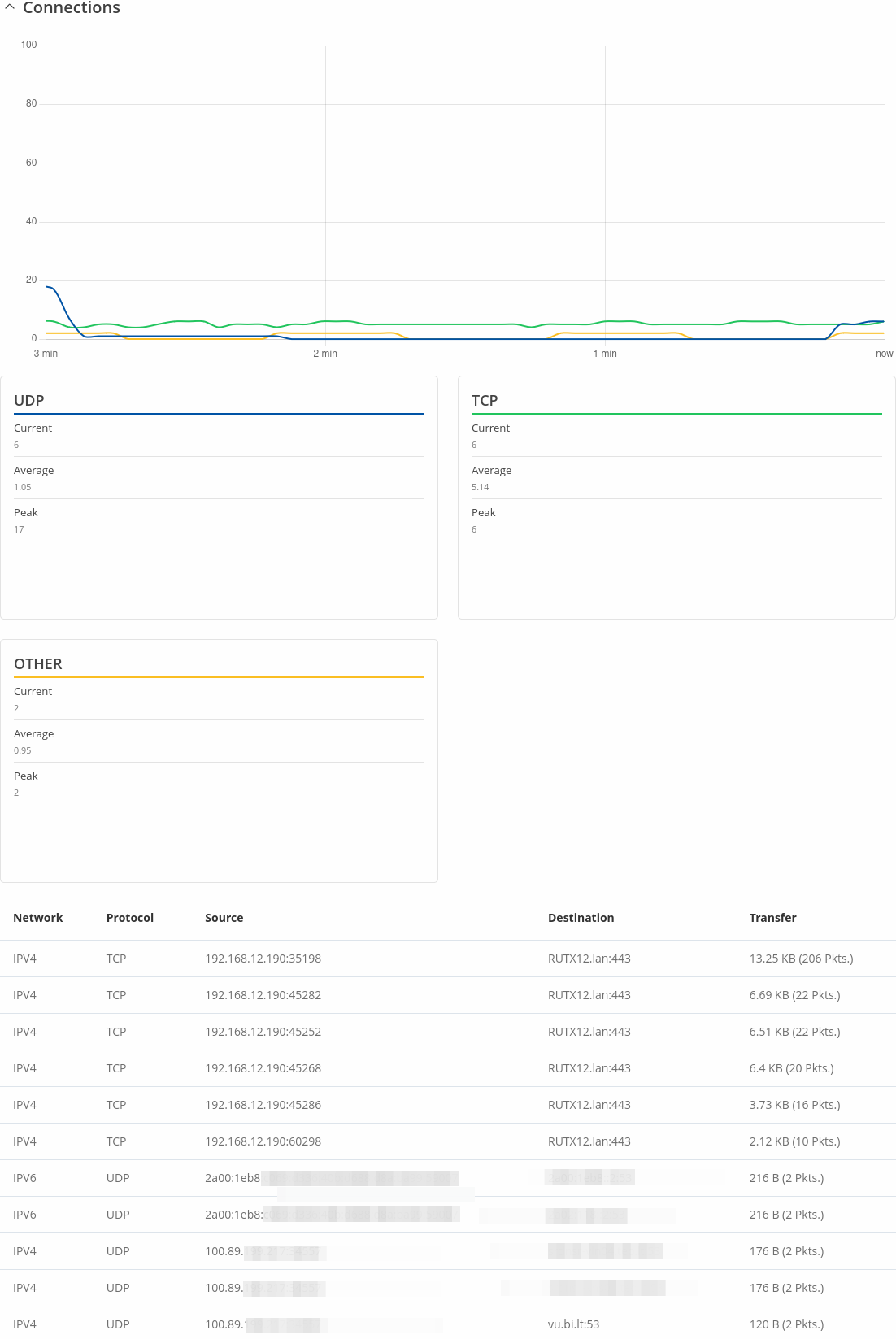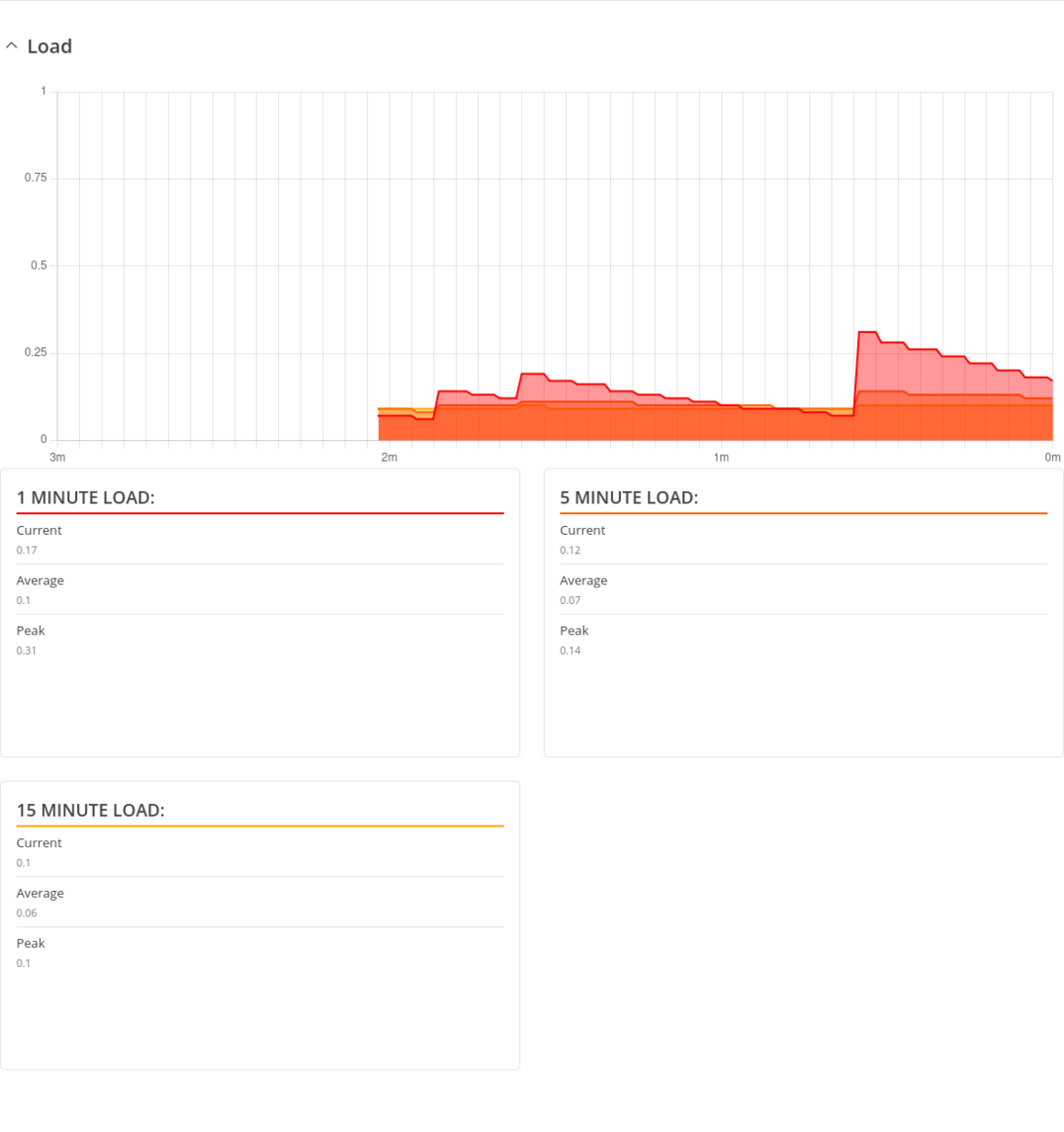TAP100 Realtime Data
The information in this page is updated in accordance with firmware version TAP_R_00.07.19.4.
Summary
The Realtime Data page contains various graphs that display various statistical data changes in real time.
This chapter of the user manual provides an overview of the Realtime Data page for TAP100 devices.
Load
The Realtime Load section displays a tri-graph that illustrates average CPU load values in real time. The graph consists out of three color coded graphs, each one corresponding to the average CPU load over 1 (red), 5 (orange) and 15 (yellow) most recent minutes.
The figure below is an example of the Realtime Load graph:
Traffic
The Realtime Traffic graphs provide users with the possibility to monitor average inbound and outbound traffic over the course of *period. Each new measurement is taken every 3 seconds for Live data. The graphs consist out of two color coded graphs: the green graph shows the outbound traffic, the blue graph shows the inbound traffic. Although not graphed, the page also displays peak loads and averages of inbound and outbound traffic.
- Live - live traffic data usage
- Day - traffic data usage values for the current day
- Week - weekly traffic data usage values
- Month - monthly traffic data usage values
- Year - yearly traffic data usage values
- All - traffic data usage for the entire monitoring period
The figure below is an example of the Realtime traffic graph for the LAN connection:

| Graph | Description |
|---|---|
| LAN | Displays traffic that passes through the LAN network interface(s) in graph form |
| Wireless | Displays traffic that passes through the wifi connection in graph form |
Wireless
The Realtime Wireless graph displays the wireless radio signal strength (blue), signal noise (green) and overall quality (yellow).
The figure below is example of Wireless graph:

Connections
The Realtime Connections graph displays currently active network connections with the information about network, protocol, source, destination addresses and transfer speed. The table below the graph displays basic information on active connections.
The figures below are examples of both of the Realtime Connections graph and the corresponding table:


